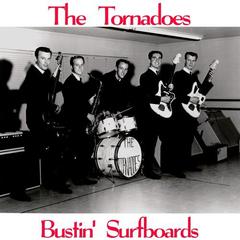Does Peter Pan Kill the Lost Boys? Unraveling the Dark Myths Behind the Classic Tale
### Description:In the enchanting world of Neverland, where childhood dreams and adventures abound, the character of Peter Pan has long captivated the heart……
### Description:
In the enchanting world of Neverland, where childhood dreams and adventures abound, the character of Peter Pan has long captivated the hearts of many. However, a darker question often lurks beneath the surface of this beloved story: **does Peter Pan kill the Lost Boys?** This inquiry not only challenges our understanding of the characters but also invites us to explore the deeper themes of innocence, mortality, and the nature of childhood itself.
Peter Pan, created by J.M. Barrie, is often seen as the embodiment of eternal youth and freedom. He leads the Lost Boys, a group of children who, like him, have chosen to forsake the adult world in favor of never-ending adventures. Yet, as we delve deeper into the narrative, we begin to uncover unsettling elements that prompt us to reconsider the true nature of Peter's leadership and the fate of the Lost Boys.

The question **does Peter Pan kill the Lost Boys** is not just a literal one; it symbolizes the potential loss of innocence that comes with growing up. The Lost Boys, who are supposed to be free from the constraints of adulthood, are still subject to the dangers of Neverland. The presence of Captain Hook and the constant threat of danger raises the stakes for these young adventurers. Are they truly safe under Peter's care, or are they merely pawns in his eternal game of escapism?
Moreover, Peter's character is often portrayed as selfish and capricious. He has a tendency to abandon the Lost Boys when it suits him, leaving them vulnerable to the perils of their surroundings. This behavior raises the question of whether Peter's leadership is genuinely protective or if it inadvertently leads to the demise of the very children he claims to care for. The narrative hints at a darker undertone—one where Peter's refusal to grow up may ultimately put the Lost Boys at risk.

In exploring the implications of **does Peter Pan kill the Lost Boys**, we also need to consider the broader themes of the story. Barrie's work can be interpreted as a critique of the notion of eternal childhood. While the idea of remaining a child forever is appealing, it also comes with consequences. The Lost Boys, much like Peter, are trapped in a cycle of immaturity that prevents them from experiencing the full spectrum of life, including the inevitability of loss and grief.
Furthermore, the question invites us to reflect on the societal pressures surrounding childhood and adulthood. In a world that often glorifies youth, we must ask ourselves what it truly means to grow up. Does the reluctance to embrace adulthood lead to a form of emotional stunting? Are the Lost Boys merely victims of Peter's refusal to face reality, or are they complicit in their own fate?

In conclusion, the inquiry **does Peter Pan kill the Lost Boys** serves as a powerful lens through which we can examine the complexities of childhood, the fears of growing up, and the darker aspects of escapism. By engaging with this question, we not only gain a deeper understanding of Barrie's timeless tale but also confront our own perceptions of innocence and maturity. As we navigate the whimsical yet treacherous waters of Neverland, we are reminded that the journey from childhood to adulthood is fraught with challenges, and the choices we make can have lasting consequences—not just for ourselves, but for those we care about.